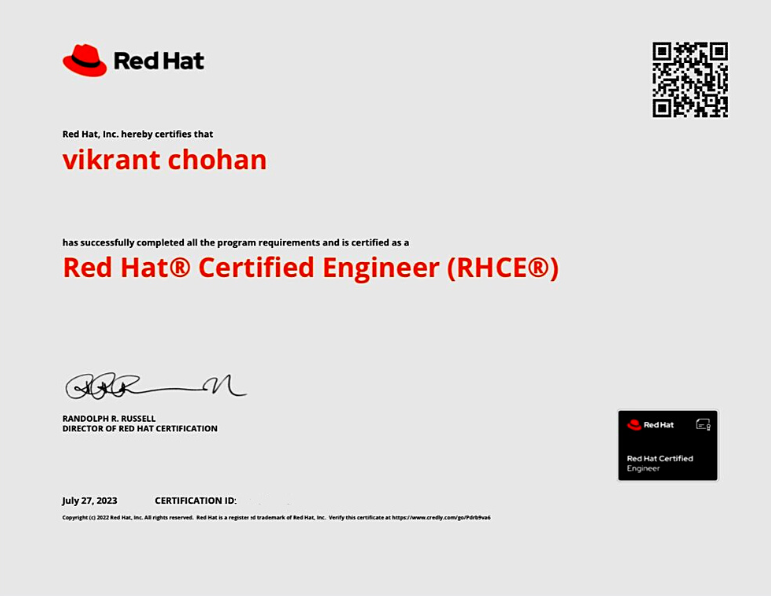Redhat Technologies
EX294: RedHat Certified Engineer (RHCE)
Red Hat Linux Automation with Ansible (RH294) provides the skills necessary to manage large numbers of frameworks and applications efficiently and dependably.
Acquire Advanced Knowledge: Expand your knowledge of Red Hat Enterprise Linux.
Industry Recognition: Within the IT industry, the RHCE certification is highly regarded.
Employment Growth: With RHCE proficiency, you can open up new employment prospects.
Operational Mastery: Be an expert in network management and Linux systems.
Solving Problems: Gain expertise in troubleshooting intricate problems.
Global Standards: Comply with IT certification standards that are accepted worldwide.
Security Focus: Acquire effective Linux system security knowledge.
In-Demand Skills: Leading companies in the IT industry are looking for candidates with RHCE skills.
Attend a free demo – Click Here!
